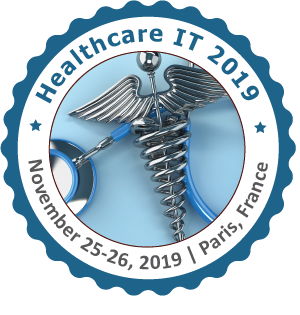
Andriy Tsvyakh
Ternopil Medical University, Ukraine
Title: Rehabilitation of patients with injuries of the elbow joint of the upper extremities by telemedicine and artificial intelligence technology
Biography
Biography: Andriy Tsvyakh
Abstract
The international orthopedic community aims to achieve the best possible outcome for patient care by modifying rehabilitation methods and using telemedicine technology. The use of artificial intelligence (AI) has a major role in the implementation of telemedicine technology. The aim of this article is to discuss the integration of telemedicine technology with machine learning algorithm in the rehabilitation of patients with injuries of the upper extremities. A total of 84 subjects with upper extremity elbow joint injuries were enrolled in the study. Forty eight patients from the control group underwent traditional rehabilitation procedures. A total of 36 subjects were enrolled in the telerehabilitation group. Home remote monitoring for the 36 test subjects included use of a prototype device with axis-sensor, temperature and volume sensors, which were fixed to the injured limb. Software with machine learning permits the monitoring of exercise time, local temperature, the frequency of active movements of the injured limb with algorithm of machine learning. Based on the patient’s individual condition and machine learning algorithm, the rehabilitation doctor created an individualized rehabilitation plan for each subject. During telerehabilitation doctor use significantly less time to consult patients (2.3 min–0.4) than the traditional rehabilitation (12.6 min–2.9). Patient satisfaction was higher for the telerehabilitation (83.1%–14.2) than for traditional rehabilitation (33.1%–8.9). Subjects reported a higher satisfaction with telerehabilitation with machine learning algorithm. The telerehabilitation systems with machine learning algorithm improve the quality of life in this group of patients and significantly reduce the cost of the rehabilitation period.

